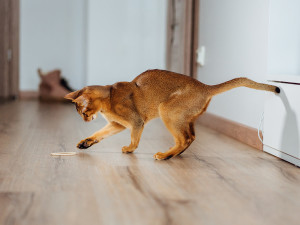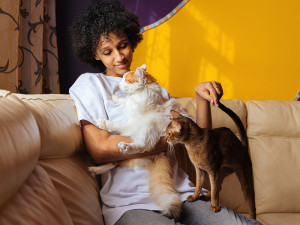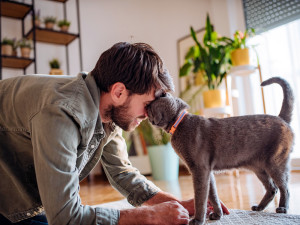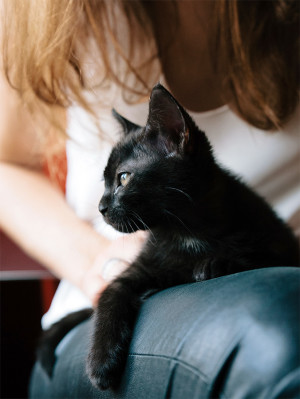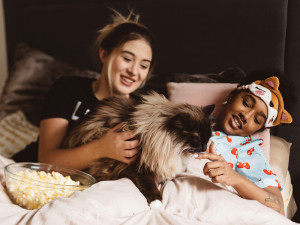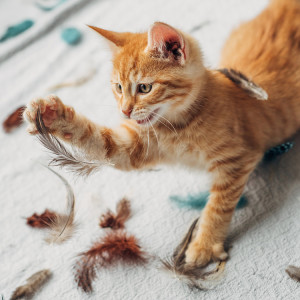Why You Should Adopt a ‘Less Adoptable’ Cat
Here’s why bonded kitties, senior cats and felines with FIV make just as amazing pets as any other
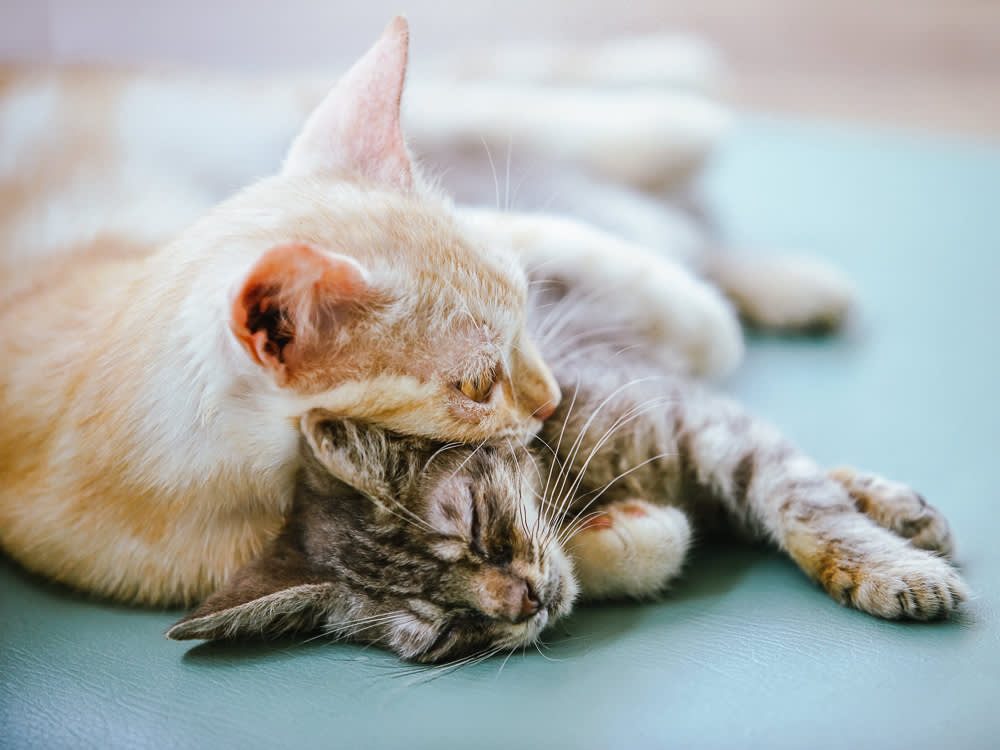
Share Article
Raising awareness about the unique joys and rewards of so-called “less adoptable” animals is important not just for individuals who may be debating whether to welcome one into their home, but also for shelters and rescues that sometimes don’t give these animals as much of a chance as others, because they don’t believe people want to adopt them. This is a misconception that Kristen Hassen, director of American Pets Alive!opens in new tab and Human Animal Support Servicesopens in new tab, says she and her organisations have been fighting against for years.
“At the heart of all the work we do is this belief that people do want the opportunity to help out an animal who’s had a hard life, a trauma history, or has special physical needs,” says Kristen. “We have to start embracing that instead of making the decision for the public about what they may or may not want.” Below are some of the kinds of cats who may be considered difficult to adopt out, but who, like any animal, can thrive in the right home.
Senior cats
Often, kittens are scooped up from shelters quickly. Not only are the tiny balls of fur impossibly charming, but adopters sometimes worry that they’ll have less time with an older cat, or that an older cat will soon develop health issues, and they’ll rack up sizeable medical bills. But senior cats are a great option for people who may want a more mellow, low-maintenance companion. Senior cats often already know how to use the litter box, are socialised with people and other pets, and are generally less hyper than a tiny kitten.
What’s more, for those concerned that they may enjoy less time with their senior cat because of their age, consider that cats typically have fairly long life expectancies. Plus, any animal you bring into your life will eventually require some medical care. No matter what cat you adopt, pet insurance can offset some of those potential costs.
Cats with chronic health issues
Although some adopters may be concerned about the time, money, and effort that goes into caring for a cat with chronic health issues – such as mobility issues, missing limbs, or a condition that requires regular medical care – Hassen underscores that special-needs pets are just like any other pets. Special-needs pets, she says, adapt to their environment and adapt to their family. “The fear is a lot greater than the reality,” Hassen says. “The vast majority of people who take home a pet with special needs are glad that they did.”
One condition unique to cats is the feline immunodeficiency virus, also known as FIV. It is primarily transmitted through bite wounds, so as long as they are kept safe and mostly inside, FIV positive cats can go symptom free for years, and live long and healthy lives.
Cats in bonded pairs
Two cats who were raised together or lived together for many years can often become what is called a ‘bonded pair’. The pair will spend most of their time together, and often run to each other’s side when the other is in distress. When a bonded pair arrives at a shelter or rescue, the staff will often try to re-home them together, a measure that is necessary not just for their emotional health, but also their physical health.
“Separating a truly bonded pair is heartbreaking,” says Kristen, who adds that with cats in particular, separating a bonded pair can be life threatening. “I’ve seen on more than one occasion two cats that were bonded actually die when they were separated.”
For adopters who aren’t sure whether they’re ready to welcome twice as many cats into their home as they had been planning on, consider the benefits: bonded pairs will be able to keep each other company when you’re gone, and they’ll likely adjust to their new home more quickly since they have each other. Plus, you’ll be able to save twice as many animals as you had been planning on.
At the end of the day, says Kristen, every animal ends up being a special needs pet in one way or another. “They have special needs because they’re all individuals,” she says. “What we want people to do is, when they do look for their next pet, consider all of those animals that are waiting for a person just like them, and who want to be seen, and are often not seen in the midst of all the puppy and kitten adorableness.”

Madeleine Aggeler
Madeleine Aggeler is a freelance journalist and copywriter in Washington, D.C. Previously, she was a writer at New York magazine’s The Cut. She lives with her dog, Cleo, who works primarily as a foot warmer.
Related articles
![Man cuddling his gray cat.]()
Does Your Cat Think You’re Their Mum?
You love them like a child, but is the feeling mutual?
![side profile of black kitten sitting on a woman's lap]()
Henry’s Pocket – The Weird Flap Of Skin On Your Cat’s Ear
Has your cat injured themselves? Are they growing themselves an extra ear? Nope, it’s far more likely you’ve just stumbled across Henry’s Pocket
Can Cats Eat Popcorn?
They want to enjoy movie night, too, you know
![A cute orange tabby kitten playing with feathers.]()
Is ‘Orange Cat Behaviour’ Real?
Your TikTok algorithm would like you to think so, but the experts weigh in

